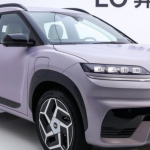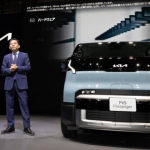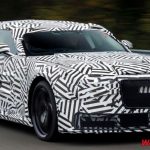The global transportation industry is undergoing a rapid transformation, driven by digital innovation, connectivity, and sustainable practices. Among the pioneers of this change stands Volvo Trucks, a brand globally recognized for its engineering excellence, commitment to safety, and forward-thinking approach.
In 2025, Volvo achieved a historic milestone: one million connected trucks operating on global roads. This accomplishment reflects not only the scale of Volvo’s global presence but also the way technology is reshaping logistics, fleet management, and long-haul transportation.
Let’s explore how Volvo reached this remarkable milestone, the benefits of connected trucks, and what this means for the future of transport and logistics worldwide.
What Does “Connected Truck” Mean?
A connected truck is not just a vehicle—it’s a data-driven ecosystem on wheels. These trucks are equipped with telematics, sensors, and cloud-based connectivity systems that collect and share real-time data.
Key functions of connected trucks include:
- Fleet Management: Monitoring truck location, fuel efficiency, and driver behavior.
- Predictive Maintenance: Detecting issues before breakdowns occur.
- Safety Features: Real-time alerts to prevent accidents.
- Fuel Optimization: Analyzing driving patterns for efficiency.
- Sustainability: Reducing emissions through smarter operations.
With one million such trucks on the road, Volvo is helping businesses operate safer, greener, and more cost-efficient fleets.
Volvo’s Journey to One Million Connected Trucks
Reaching this milestone was not an overnight achievement—it was the result of years of investment in innovation.
- Early Adoption of Telematics
Volvo began integrating digital solutions into its trucks well before connectivity became a global trend. Its early telematics systems allowed remote monitoring of vehicle health and driver behavior. - Global Expansion
Volvo has trucks operating in over 190 countries, making it one of the most widespread commercial vehicle brands in the world. This global presence gave it the platform to deploy connected technologies at scale. - Focus on Safety and Sustainability
True to its philosophy, Volvo emphasized connected solutions that save lives and reduce emissions, appealing to logistics companies aiming for efficiency and compliance with environmental standards. - Partnerships and Ecosystems
Volvo worked with fleet operators, software providers, and governments to ensure connected systems met real-world needs.
Through this steady and purposeful strategy, Volvo has now placed one million connected trucks on the road, marking a revolution in modern trucking.

Benefits of Connected Trucks
1. Enhanced Safety
Volvo’s connected trucks are equipped with safety-driven features such as:
- Collision warnings
- Driver fatigue alerts
- Emergency braking systems
- Real-time hazard detection
These features drastically reduce accident risks, protecting both drivers and road users.
2. Operational Efficiency
Fleet managers can monitor vehicle status remotely, schedule maintenance, and minimize downtime. Predictive diagnostics reduce costly repairs and ensure trucks remain on the road longer.
3. Fuel and Cost Savings
By analyzing driving behavior and optimizing routes, connected trucks reduce unnecessary fuel consumption. This saves companies money while reducing their environmental footprint.
4. Sustainability and Emission Reduction
Volvo’s connected technologies align with its vision of a carbon-neutral future. Data-driven driving reduces CO₂ emissions, contributing to global climate goals.
5. Driver Comfort and Support
Connected dashboards provide real-time feedback, navigation support, and performance monitoring, making life easier and safer for truck drivers.
How One Million Connected Trucks Impact the Global Transport Industry
Volvo’s achievement of one million connected trucks signifies a broader transformation in logistics and supply chain management.
- Smarter Fleets: Logistics companies can make data-backed decisions for deliveries, route planning, and scheduling.
- Reduced Delays: Predictive maintenance minimizes breakdowns, ensuring smoother supply chains.
- Insurance Benefits: Safer trucks mean lower accident rates, which can reduce insurance costs for fleet owners.
- Global Standard Setting: With one million connected vehicles, Volvo sets the industry benchmark for connected transportation.
This milestone is not just about technology—it’s about reshaping how goods are moved worldwide.
Volvo’s Commitment to the Future
Volvo’s journey doesn’t stop at one million connected trucks. The brand has ambitious goals for the future:
- Electrification of Trucks
Volvo is already working on electric and hydrogen fuel cell trucks, aiming for a fossil-free future. Connectivity will play a vital role in optimizing battery usage and charging infrastructure. - Autonomous Trucks
Connected technologies lay the groundwork for autonomous trucking, where self-driving vehicles will revolutionize long-haul logistics. - Smart Cities and IoT Integration
Volvo envisions a future where trucks seamlessly connect with smart city infrastructure, improving traffic flow and reducing congestion. - Sustainability Goals
By 2040, Volvo aims to achieve net-zero emissions across its entire product portfolio, with connectivity being a key enabler of sustainable logistics.
Why This Milestone Matters for Businesses
For fleet owners, transporters, and logistics companies, this milestone brings confidence and trust. It shows that connected technologies are no longer experimental—they are proven at scale.
Businesses that adopt connected Volvo trucks benefit from:
- Reduced operating costs.
- Increased driver and cargo safety.
- Higher productivity due to minimized downtime.
- Compliance with international sustainability regulations.
This makes Volvo not just a truck manufacturer but a partner in long-term logistics success.
Conclusion
The achievement of one million connected trucks on global roads marks a historic milestone for Volvo Trucks and the transport industry as a whole. It highlights how digitalization and connectivity are no longer future trends—they are the present reality shaping logistics, safety, and sustainability.
With its focus on innovation, safety, and eco-friendly practices, Volvo has set the standard for the future of trucking. As the company looks toward electrification and autonomous driving, this milestone is just one step in its journey to redefine global mobility.
The road ahead is clear: connected, smart, and sustainable transportation will drive the logistics industry forward—and Volvo Trucks is leading the way.

Hello, my name is Muskan Kumari and I am an experienced Digital Marketer. I have been blogging for the last 3 years and I have special interest in SEO. Here I give you easy bikes and writes easy-to-understand reviews and news about the latest bikes, helping readers choose the best options.. My aim is to always provide you with accurate, new and useful information.










